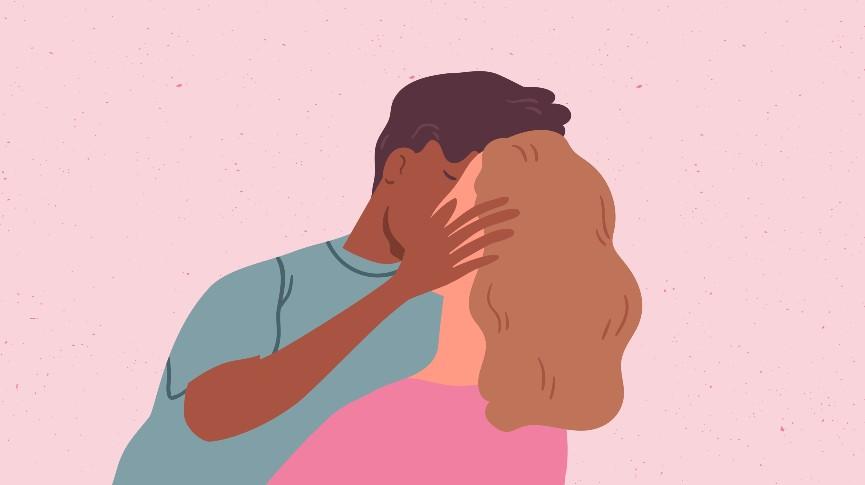All about Mononucleosis: Symptoms, Risks and Treatment
If your grade school was or is anything like mine if a classmate was out with an unexcused absence for an extended period more often than not rumours would start spreading.
Those rumours often consisted of assuming someone had mononucleosis, aka the kissing bug.
What is Mononucleosis?
The infectious form of mononucleosis is typically caused by a virus, most commonly Epstein-Barr virus (EBV). EBV, a herpes virus, is the most common cause, although mono can be caused by other viruses.
Mono is most common amongst young adults and teens, particularly young college students, but children can get it as well. About ninety percent of people in the United States will be infected with EBV by the age of thirty-five. At least one in four of those infected will go on to develop mononucleosis. Many people simply carry the virus without ever developing symptoms.
The Epstein-Barr virus takes the cake when it comes to being the main culprit for mono – accounting for more than ninety percent of cases.
But it’s not the only one, here are some other viruses that can cause someone to develop mono:
What are The Symptoms of Mono?
The most common symptoms of mono are extreme fatigue, body aches, and fever.
Other symptoms people might experience include:
- A sore throat
- Bodily rash
- Swollen lymph nodes in the armpits or neck
- Swollen spleen and/or liver
- Headaches
- Loss of appetite
- Muscle weakness or aches
If you experience any of these symptoms, you should contact your doctor:
- Difficulty swallowing or breathing
- Consistently high fever
- Severe headaches
- A sharp pain in the upper left abdomen (where the spleen is)
- Extreme muscle weakness
- Fainting or dizziness
Typically people with mono feel sick for about a month, which can greatly interfere with work or school. Some people may feel better in as little as two weeks, while in some cases people may experience symptoms for six months or even longer.
Although school-age children are amongst the most common people to acquire the Epstein-Barr virus, they are often asymptomatic, unlike teenagers and young adults.
Why is it Called The Kissing Bug?
Its reputation of being the kissing bug comes from how it’s spread – which is usually through bodily fluids like saliva. This is in large part due to how the EBV virus works since it begins to shed in your throat.
Epstein Barr is a herpes virus that can be sexually transmitted but is different from the virus that causes oral and genital herpes.
EBV and the other viruses that can cause mono are typically spread through means like:
- Kissing, hence the name
- Coughing or sneezing
- Sharing food or drinks
- In rare cases, organ transplants
Researchers aren’t totally clear on how long someone with mono is actually contagious. Oftentimes, people don’t develop symptoms for four to six weeks after acquiring the virus, which gives them a lot of time to unknowingly spread it to others. The time in between when someone acquires the virus and when they start to show symptoms is called the incubation period.
Think of how often you shared saliva as a teen. From sharing lip gloss and drinks to playing spin the bottle – it’s easy to see how mono can spread like wildfire.
What Does Treatment Look Like?
In most cases, mono isn’t serious and doesn’t require treatment outside of rest and supporting the immune system.
To diagnose you, your healthcare provider will check for swollen lymph nodes in your neck, and may check for an enlarged liver or spleen.
If mono is suspected, they may do blood tests to detect antibodies your body makes to fight EBV. Checking for the number of lymphocytes, or white blood cells, that you have can also help your doctor determine if an infection is present.
There is no vaccine against mono, and antibiotics and antiviral medications don’t work against it. While there is no specific cure, treatment just involves taking care of yourself and managing any discomfort from symptoms.
This means staying well hydrated, getting plenty of rest, taking non-steroidal anti-inflammatory drugs like ibuprofen or naproxen, soothing a sore throat, and avoiding excessive physical activity.
The biggest concern with mono is a ruptured spleen. Since the spleen helps to filter your blood, if it bursts it can cause internal bleeding in the abdomen which can be life-threatening. A ruptured spleen requires emergency surgery.
Can You Get Mono More Than Once?
Usually, the body develops an immunity when fighting off the virus, so most people don’t get it twice.
After the symptoms of mononucleosis subside, the EBV virus does stay dormant in the body. Most people however only develop mono once. EBV can reactivate and while that rarely causes symptoms again, it can make you contagious.
People with weakened immune systems are more likely to develop symptoms of mono multiple times.

